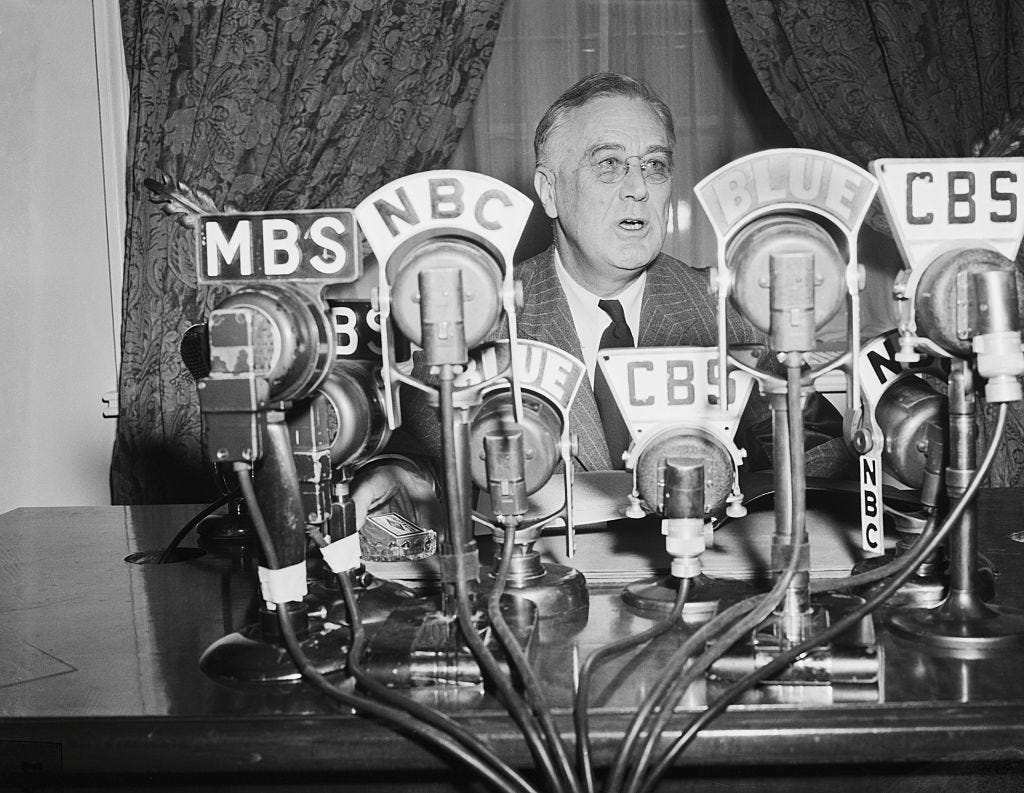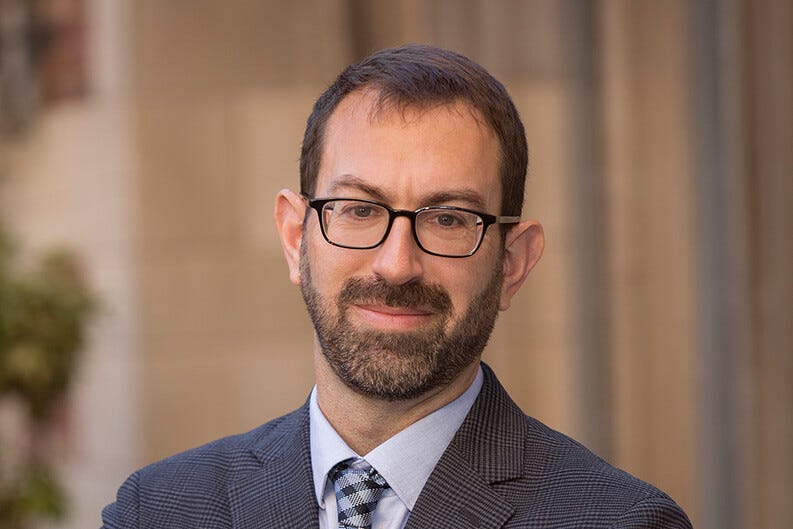Waiting on the World to Change
Legal scholar and historian Samuel Moyn on why Democrats can’t argue against Trump and why a radical vision for the future that breaks the neoliberal status quo is the way forward
We’ve spent a lot of this week puzzling over the idea of “unity” — asking why, exactly, it's the responsibility or role of Democrats to “turn down the temperature” following moments of crisis (such as an assassination attempt) — even as Republicans continue to feed the flames. Isn’t there a fight against fascism to win?
We reached out to Samuel Moyn, professor of law and history at Yale University (where he also heads Grace Hopper College), and one of the most prominent left critics of American liberalism, to get his thoughts on why Democratic campaign efforts have been incommensurate with the notion of an actual fascist threat, the state of the effort against Trumpism and its likely prospects in November, and what he thinks needs to be done to present an alternative that can actually succeed with voters.
For Moyn, no legal — or any extra-electoral — solution is likely to succeed, and what’s required is a compelling alternative vision that can compete with Trump’s hollow populism.
That vision, Moyn says, would need to do more than just return the U.S. to a pre-2016 status quo. Rather, it would have to encompass a serious challenge to neoliberalism, addressing its economic failures, a real commitment to labor, and provide a motivating narrative for the country — something at least reminiscent of Obama’s or Reagan’s takes on redemption, but ideally akin to F.D.R.’s all-encompassing vision for the New Deal — and that hasn’t been forthcoming from either party.
A request for those who haven’t yet joined us: The interviews and essays that we share here take research and editing and much more. We work hard, and we are eager to bring on more writers, more voices. But we need your help to keep this going. Join us today as a paid subscriber to support the kind of independent media you want to exist.
Something we’ve asked a lot of people about over the last year is why — if we’re looking at a real threat to democracy from Trumpism, why doesn’t the Democratic response seem commensurate with that threat?
Back in 2017, you made an argument about “tyrannophobia,” saying that sentiment against Trump misidentified what was happening on the Right and expressed a deep-seated American distrust of concentrated power rather than any sort of thought-through diagnosis of fascism.
So from your perspective today, would you make the same call? Also, did the Democratic Party listen to you in some way? Is opposition to fascism more of a motto than an animating idea?
It is still the wrong framing to figure out whether Donald Trump’s turpitude is being underhyped or overhyped. That was never our point, no matter how many times I have been treated as someone downplaying the threat. Rather, our goal was to say that the hackneyed phrase “threat to democracy” begs the important question: what parts of the democracy we inherited are worth preserving, and which parts need to be replaced?
F.D.R. commented that “Too many of those who prate about saving democracy are really only interested in democracy as it was.” I still believe that has been true of too many of Trump’s enemies, who don’t have much of a vision of the future, only a path back to the status quo ante 2016.
Like any president in the last century, Trump got excessive power — yet one of the striking things about the first time he was president was how hemmed in he was, basically until the end. (Meantime, it was Mitch McConnell and Mike Pence, more than any other actors, who stopped his self-coup.) Our view in 2017 that Trump didn’t threaten to topple democracy like Adolf Hitler did but was terrible for worse reasons — many continuous with “normal” American history — proved true for three whole years.
That said, I agree with George Orwell when he remarked “When the facts change I change my mind — what do you do?” The self-coup changed a great deal; and in part because of the search on the right for a new politics for America and in part because of the way Trump was opposed on the left the first time, there is every reason to think a second Trump presidency will be worse. I don’t disagree there; I continue to disagree with my fellow liberals and progressives that the best way to respond is by calling him a fascist and hoping that investigators or judges will stop him. Rather, we need to present a winning alternative, our own new politics for America.
Following on that, after the assassination attempt this weekend, what we’re getting from the Democratic party are calls for unity, a decision to step back from campaigning, and a sort of respectability politics — while figures on the right (thinking about newly minted V.P candidate Vance and Mike Collins here) are putting the blame on Democratic demonization of Trump or even (thinking about Matt Walsh) suggesting that if Democrats were serious about the fascist threat, assassination would be justified.
Meanwhile, Trump himself is making at least some call for “unity” at the convention. What do you make of all of this messaging? Obviously it’s tactical in a lot of ways, but first, what do you think “unity” looks like for the Republicans at this point? And second, are Democrats making an error here and underplaying a threat? Or do you see this as realistic?





